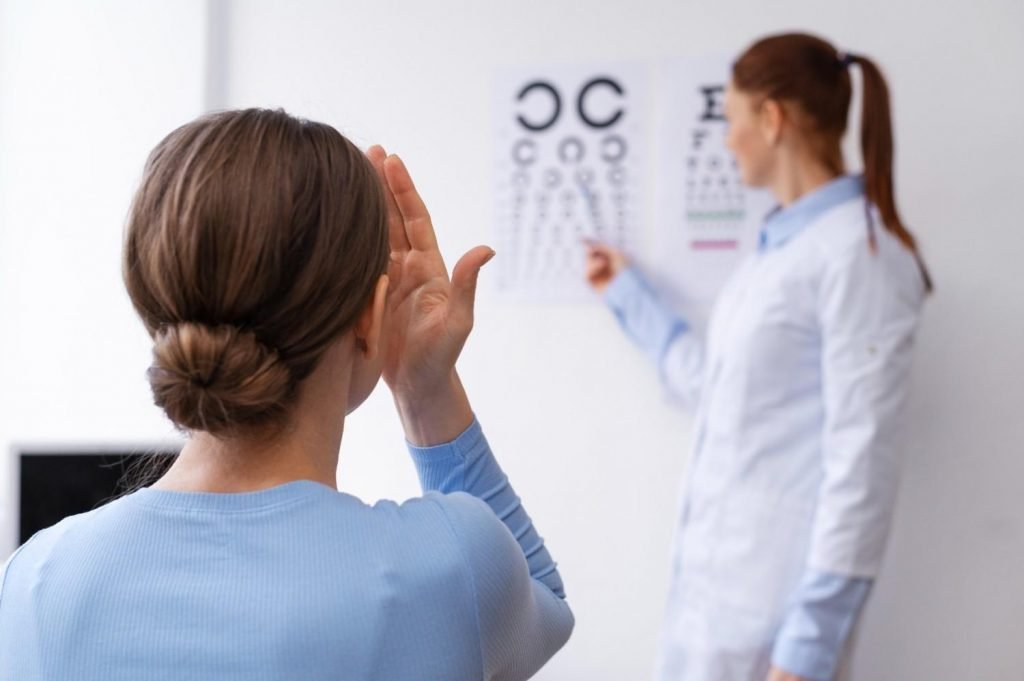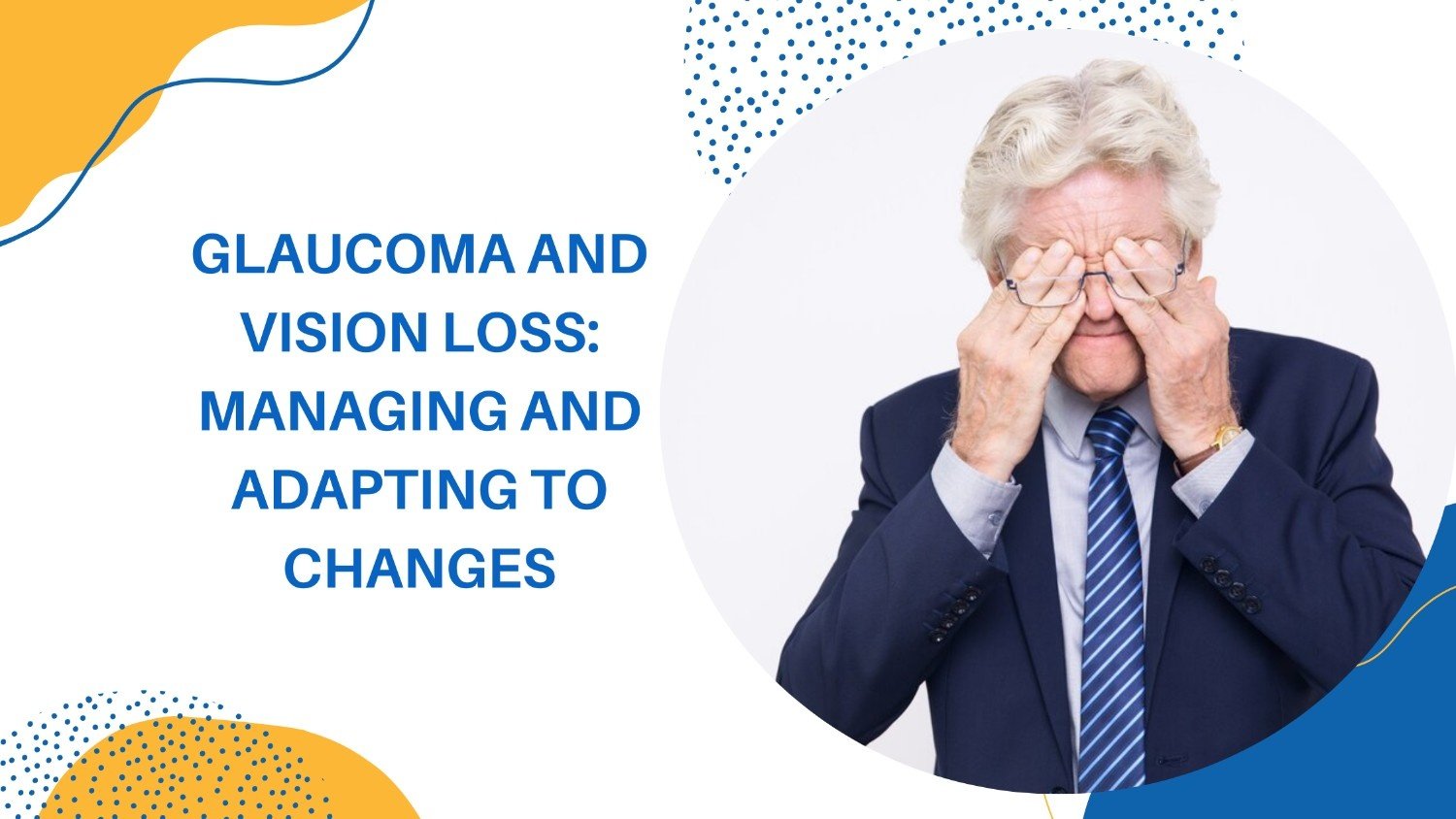UNDERSTANDING GLAUCOMA
Glaucoma, a term encompassing a range of eye disorders, is the predominant cause of optic nerve damage leading to vision loss. The condition often arises from fluid accumulation in the front part of the eye, causing intraocular pressure (IOP) and gradual damage to the optic nerve.
Notably, some individuals with normal eye pressure can still develop glaucoma. If left untreated or poorly managed, glaucoma can result in irreversible vision loss and blindness.
While glaucoma typically affects both eyes, the initial severity may differ. In cases of open-angle glaucoma, one eye may experience varying degrees of damage, with the other eye being mildly affected.
Individuals with closed-angle glaucoma in one eye have a substantial 40% to 80% chance of developing the same glaucoma type in the other eye within five to ten years.
This emphasizes the importance of early detection and effective management to mitigate the potential long-term consequences of glaucoma.
WHAT ARE THE SYMPTOMS OF GLAUCOMA?

Glaucoma symptoms include-
- Eye pain or pressure.
- Headaches.
- Rainbow-colored halos around lights.
- Low vision, blurred vision, narrowed vision (tunnel vision), or blind spots.
- Nausea and vomiting.
- Red eyes.
MANAGING GLAUCOMA AND ADAPTING TO VISION LOSS
Upon receiving a glaucoma diagnosis, prioritizing management is crucial to prevent additional vision loss. While glaucoma vision loss is irreversible, implementing specific strategies allows individuals to adapt and maintain a high quality of life.
HOW DO YOU TAKE CARE OF YOUR EYES IF YOU HAVE GLAUCOMA?
- A low vision exam is recommended for individuals with glaucoma to optimize existing vision. This specialized examination identifies tailored solutions like magnifiers or prism glasses for enhanced visual field.
- Vision rehabilitation services assist individuals with glaucoma in mastering daily tasks through training techniques that utilize remaining vision and other senses, along with specialized products for improved independence.
- Individuals with glaucoma should collaborate with an orientation and mobility specialist to navigate challenges. Using a long white cane under their guidance enhances independent travel skills with dedicated training.
- Regularly scan surroundings due to glaucoma’s impact on peripheral vision. Blind spots may not be immediately apparent as the brain compensates, making recognizing the extent of vision loss challenging. Vigilant scanning helps individuals with glaucoma stay aware and minimize the risk of missing vital visual information.
- For visual field loss in glaucoma, identify boundaries and improve object location by placing contrasting tape on doorways or cupboards. This enhances visibility, making identifying edges and locating objects easier despite visual challenges.
- Consistency and organization benefit those with glaucoma. Keeping items in fixed locations and communicating with family ensures easy access, contributing to an organized living environment.
MANAGING GLAUCOMA WITH MEDICATIONS

Ensure your glaucoma medications have a consistent designated location for easy accessibility.
- Opt for a medication organizer equipped with an alarm or a comparable device to help you stay on schedule with your medication doses.
- Create a prominent reminder on a sticky note using a broad-tip marker, and place it on your bathroom mirror to ensure visibility.
- If shaky hands make applying eye drops challenging, consider using various adaptive devices to assist with this task.
TREATMENT FOR GLAUCOMA
MEDICATIONS TO TREAT GLAUCOMA
Prescription eye drops effectively treat glaucoma by regulating eye pressure through fluid reduction and improved drainage. Due to the chronic nature of glaucoma, daily use of these drops, possibly multiple times a day, may be necessary.
The FDA approved a new delivery device for bimatoprost, a common glaucoma treatment, introducing the Durysta implant. This dissolvable implant offers prolonged efficacy over months, but it’s limited to a one-time placement in each eye.
LASER THERAPY TO TREAT GLAUCOMA
Eye specialists use laser therapy, harnessing a powerful beam of light, to improve eye fluid drainage.
It can be an initial or combined treatment with eye drops. While not replacing the need for eye drops entirely, the outcomes vary, lasting several years for some individuals. Providers may consider repeating certain laser treatments for continued effectiveness in specific cases.
SURGERY TO TREAT GLAUCOMA
Surgery, though more invasive, offers a quicker way to control eye pressure than drops or laser treatments in glaucoma. While it can slow vision loss, surgery can’t restore lost vision. Options range from traditional procedures to minimally invasive glaucoma surgery (MIGS).
Using stents or devices to improve fluid outflow, MIGS often has a faster recovery with fewer risks than traditional surgeries. The landscape of glaucoma surgeries, especially MIGS, continues to expand and advance.
HOW CAN I IMPROVE MY VISION WITH GLAUCOMA?

Despite the irreversible nature of glaucoma-related vision loss, there are ways to optimize existing vision:
Low Vision Aids: Use tools like magnifiers and electronic devices with large fonts for improved reading and daily tasks.
Enhanced Lighting: Ensure well-lit environments to improve visibility and reduce eye strain.
Visual Rehabilitation: Participate in programs that maximize remaining vision through training and adaptive techniques.
FREQUENTLY ASKED QUESTIONS (FAQs)
Can glaucoma treatment recover vision loss?
Glaucoma-induced vision loss is irreversible. Treatment focuses on preventing further damage and preserving the remaining vision.
What should glaucoma patients avoid?
- Smoking
- Excessive Caffeine Intake
- Strenuous Exercise
How long will your vision last with glaucoma?
Glaucoma progresses differently for each person, with factors like glaucoma type, treatment adherence, and overall eye health influencing the rate of vision loss. Early detection and consistent management are vital to preserving vision for longer.
CHOOSE KRISHNA EYE CENTRE FOR MANAGING AND TREATING GLAUCOMA
Krishna Eye Centre, a specialized chain of eye care clinics in central Mumbai, is dedicated to medical excellence and patient satisfaction.
Our expert ophthalmologists, supported by skilled staff, ensure precision and success in delivering high-quality eye care at competitive prices, prioritizing our patients’ well-being.
